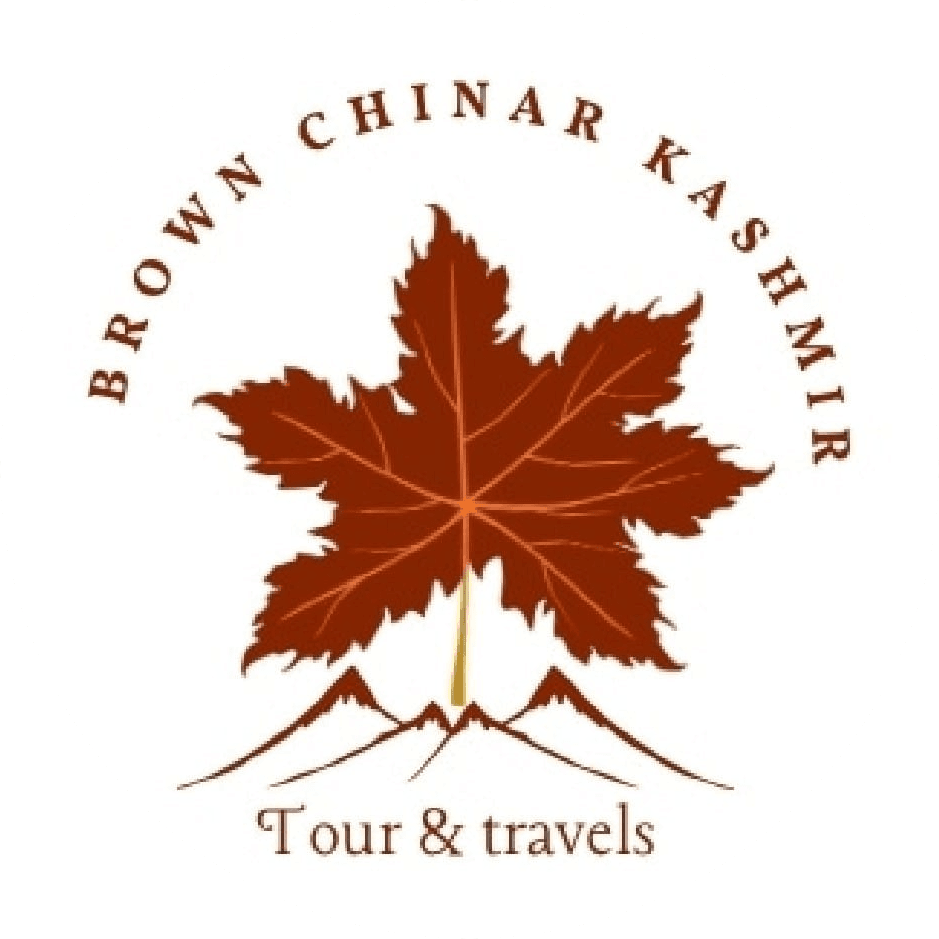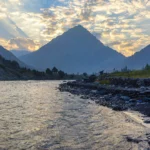Table of Contents
Toggle- Overview
- Why Kashmir Should Be on Your Bucket List
- Best Time to Visit Kashmir
- How to Go to Kashmir
- Accommodation Places in Kashmir
- Must-Visit Places in Kashmir
- Local Cuisine: A Foodie's Delight
- Kashmiri Culture and Etiquette
- Safety Tips and Travel Advice
- Packing List for Your Kashmir Trip
- Sample 7-Day Kashmir Itinerary
- Frequently Asked Questions (FAQs)
- Conclusion
- How to book Kashmir tour online?
- People Also Ask
- What is the best time to visit Kashmir?
- Do foreign tourists need a visa for Kashmir?
- Is Kashmir safe for solo travelers?
- How do I reach Srinagar by air, rail, and road?
- What is the ideal duration for a Kashmir itinerary?
- What permits are required for restricted areas in Kashmir?
- How safe is the water in Kashmir?
- What vaccinations are recommended for Kashmir travelers?
- Can I use credit cards everywhere in Kashmir?
- What is the best mode of transport within Kashmir?
- How do I register with the Foreigners Registration Office (FRO)?
- What should I pack for a Kashmir trip?
- Which Kashmiri dishes should I try?
- Are houseboats on Dal Lake hygienic?
- What languages are spoken in Kashmir?
- How reliable is internet and mobile connectivity?
- What are the shopping options in Srinagar?
- Can I drink alcohol in Kashmir?
- What emergency numbers should I note?
- Are there any local customs I should follow?
- How do I avoid altitude sickness in Kashmir?
- Is tipping customary in Kashmir?
- What wildlife can I spot in Kashmir?
- Can I go river rafting in Kashmir?
- Which festivals are best to experience in Kashmir?
- Inquiry Form
Overview
Take a journey of remembrance while visiting the unmatched beauty of Kashmir Tourism. Situated in the cradle of Himalayas, this paradise on earth opens its doors for you with snow-clad mountains, crystal clear lakes, lush valleys, and affluent culture. If you are on a Kashmir honeymoon tour, a solo tour, or a family tour, this ultimate Kashmir travel guide shall walk you through all that you require for a smooth and fruitful experience.
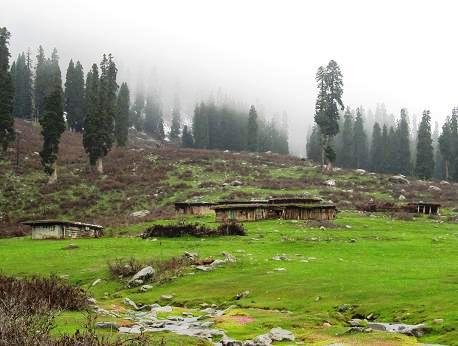
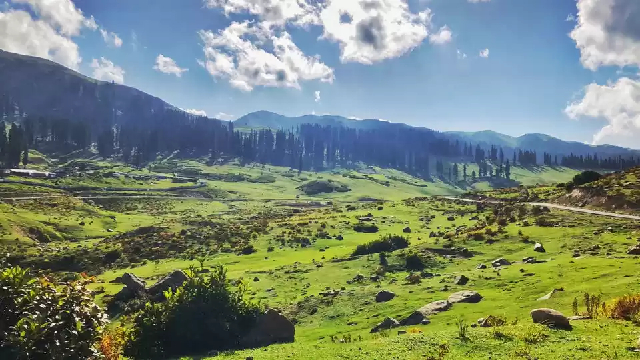
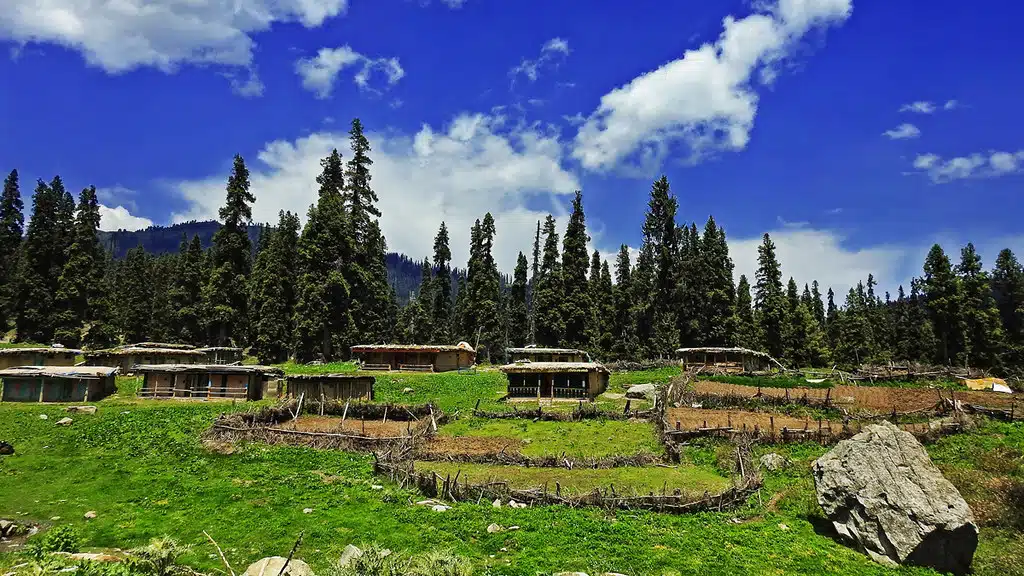
Why Kashmir Should Be on Your Bucket List
The “Paradise on Earth” reputation of Kashmir is no exaggeration. From houseboats on Dal Lake to the ski experience of Gulmarg hills, Kashmir has something for every kind of traveler. Foreigners throng the Pahalgam treks to trek, see the multi-colored tulips of Indira Gandhi Memorial Tulip Garden, and take part in cultural festivals celebrating Kashmiri culture.
Best Time to Visit Kashmir
Timing is everything when it comes to Kashmir. Each season offers its own magic:
- Spring (March–May): View tulip flowers, green meadows, and pleasant weather—a photographer’s and visitor’s delight.
- Summer (June–August): Beat the heat as temperature varies between 15°C and 30°C. Best time for houseboat living on Dal Lake and grassland experience of Sonamarg.
- Autumn (September–November): Enjoy clear blue skies, golden color of leaves, and harvest celebrations. Best time to go on Pahalgam treks and visit Mughal Gardens.
- Winter (December–February): Enjoy snow-white landscapes and ski on Gulmarg’s virgin slopes at the best time to ski.
How to Go to Kashmir
By Air
Srinagar International Airport (SXR) is the airport that connects Kashmir with India’s key cities, including Delhi, Mumbai, and Bengaluru. Several domestic airlines and a few international airlines facilitate travel to the state.
By Rail
Nearest major railway station is Jammu Tawi (JAT) at a distance of 300 km. Taxi or one of the state buses zigzags and twists along mountain roads from Jammu.
By Road
There are smooth highways from Kashmir to Jammu, Chandigarh, and Delhi. Drive on the Jammu-Srinagar National Highway (NH44), which is scenic and winding along picturesque landscapes, tunnels, and high-altitude mountain passes like Pir Panjal.
Accommodation Places in Kashmir
Kashmir has a range of accommodations for every budget and preference:
- Dal Lake Houseboats: Sample Kashmir hospitality on hand-carved wooden houseboats. Take Shikara rides and mountain views from your balcony.
- Luxury Resorts: In Gulmarg and Pahalgam, international-class resorts offer spa facilities, fine dining, and valley views.
- Budget Accommodations and Guesthouses: Family-run guesthouses in the old city of Srinagar and village fringes offer home food Kashmiri cuisine and cultural experience.
- Homestays and Camping: Off-season tour is possible via camping in Sonamarg or homestaying with villagers in rural Kashmiri households.
Must-Visit Places in Kashmir
- Srinagar and Dal Lake
Shikara Ride: Float on Dal Lake on a wooden shikara amidst lotus flowers and floating gardens.
Mughal Gardens: Visit Nishat Bagh, Shalimar Bagh, and Chashme Shahi—beautiful specimens of Mughal gardens.
Old City Bazaars: Walk through packed bazaars for Pashmina shawls, papier-mâché souvenirs, and detailed handicrafts.
- Gulmarg
Gondola Ride: Take a ride on one of the highest cable cars in the world up to Apharwat Peak with panoramic views.
Gulmarg Skiing: Ski, snowboard, and snow tube in winter—Gulmarg is renowned as one of India’s best ski resorts.
Golf Course: Tee off at the highest 18-hole golf course in the world over rolling green pastures.
- Pahalgam
Betaab Valley & Aru Valley: Bollywood movie-named valleys offering scenic views, horse riding, and picnic areas.
Pahalgam Trekking: Trek to Lidder River, pine forests, to Lidderwat meadow.
Baisaran Hills: “Mini Switzerland,” ideal for trekking and panoramic views of Pahalgam town.
- Sonamarg
Thajiwas Glacier: Pony ride or trek to the all-season glacier with snow in summer.
River Rafting: Experience the thrill through white-water rafting on the Sindh River.
Hemkund Sahib Pilgrimage: Steep trek to a high-altitude Sikh temple and virgin lake for the pilgrim.
- Other Off-the-Beat Gems
Yusmarg: Scenic meadows and calm forests perfect for picnics, pony rides, and walks.
Doodhpathri: “Milk Valley,” famous for pastures and frozen streams.
Aru Valley: Isolated campsite near Pahalgam, with bird watching and stargazing.
Local Cuisine: A Foodie's Delight
Kashmiri cuisine is a fusion of Central Asian, Persian, and North Indian cuisine. Foreign tourists suggest:
- Rogan Josh: Aromatic lamb curry prepared with Kashmiri spices and yogurt.
- Gushtaba: Mutton meat ball mincemeat in rich gravy—Royal Wazwan dish.
- Yakhni: Soft mutton curry made with yogurt, served traditional style with steaming rice.
- Modur Pulao: Saffron rice mixed with sweet potatoes, topped with dried fruits and nuts.
- Kahwa: Green tea traditionally spiced with saffron, cardamom, and almonds—perfect to banish the chill.
Indulge in street food snacks such as Tabakh Maaz (lamb rib fritters) and Lyodur Tschaman (paneer-gravy with Kashmiri flavor). Vegetarians can sample Dum Aloo, Chaman, and haakh (mustard greens).
Kashmiri Culture and Etiquette
Kashmir’s warm hospitality is legendary, but be sure to respect local manners:
- Dress Modestly: Men and women should dress modestly with shoulders and knees covered, especially while visiting holy sites.
- Remove Shoes: Always remove shoes while visiting mosques, temples, and homes.
- Ask Permission Before Photography: Respect privacy in villages and outlying areas.
- Greet with “As-Salaam-Alaikum”: A common Muslim greeting; respond with “Wa-Alaikum-Salaam.”
- Steer Clear of Politics: The politics of Kashmir are touchy—avoid discussing anything political.
Be a part of local customs by visiting a Kashmiri Wazwan feast or having a Chinar tree shade picnic as Rouf (Kashmiri folk dance) is danced by locals.
Safety Tips and Travel Advice
Safety in Kashmir demands prior planning:
- Stay Informed: Keep up with local advisories on weather, road closure, and security news.
- Registration with Authorities: Foreigners should be registered in the Foreigners Registration Office (FRO) at Srinagar within 24 hours of reaching the destination.
- Travel in Convoys: Particularly to remote areas—engage local guides or drivers who know the country.
- Keep Important Documents: Duplicate passport, visa, and registration certificate and keep them apart from originals.
- Avoid Restricted Areas: Certain areas close to the Line of Control (LoC) are restricted.
- Health Precautions: Pack a first-aid kit, altitude sickness medication for trekking in high altitudes, and bottled water.
Adhering to these safety tips, your Kashmir honeymoon, adventure tour, or culture tour will be safe and enjoyable.
Packing List for Your Kashmir Trip
Make sure you have all the gear required for the unpredictable Kashmir weather:
- Clothing: Layered clothing—thermal underwear, fleece jacket, waterproof jacket, and robust trekking boots.
- Accessories: Wide-brimmed hat, gloves, scarf, and a warm beanie.
- Travel Gear: Daypack, refillable water bottle, power bank, and world plug adapter.
- Documents & Money: Passport, visa, travel insurance, local money (INR), credit cards.
- Health Kit: Basic medicines, sun block (high SPF), insect repellent, and altitude sickness pills.
- Photography Equipment: Camera, extra batteries, memory cards, and a tripod to capture the Northern Lights-like snow scene in winter.
Packing thoughtfully ensures you’re prepared for every scenario—from a Shikara ride at sunrise to an evening bonfire under the stars.
Sample 7-Day Kashmir Itinerary
Day 1: Arrival in Srinagar
Check-in to a Dal Lake houseboat.
Evening Shikara cruise with kahwa and snacks onboard local.
Day 2: Srinagar Tour
Visit Mughal Gardens: Nishat Bagh and Shalimar Bagh.
Visit handicrafts, old city bazaar, and Pashmina.
Day 3: Gulmarg Tour
Tour of Gulmarg; gondola ride at Gulmarg.
Skiing or snow adventure optional (depending on the season).
Day 4: Sonamarg Adventure
Trip to Sonamarg for one day; Thajiwas Glacier trek.
Rafting along Sindh River.
Day 5: Pahalgam Retreat
Drive to Pahalgam through the saffron fields at Pampore in between.
Evening walk by Lidder River.
Day 6: Valleys and Trekking
Horse ride to Betaab Valley and Aru Valley.
Picnic in meadows; relish local trout fish.
Day 7: Return
Depart for Srinagar for shopping.
Transfer to Srinagar International Airport.
You can modify this Kashmir travel guide tour itinerary according to your interest and traveling pace.
Frequently Asked Questions (FAQs)
Q1: Do I require a visa to travel to Kashmir?
Yes, a foreign tourist will need to have a valid Indian visa. Register online on India’s e-Visa portal and register with the FRO as well upon arrival within 24 hours.
Q2: Is it safe to travel alone in Kashmir?
Though most solo travelers enjoy themselves, it is a good idea that you engage local guides to do offbeat treks and far-flung valleys.
Q3: Do I find credit cards available everywhere?
There are many large hotels and restaurants at Srinagar, Gulmarg, and Pahalgam that accept cards. Carry some cash for the small shopkeepers and off-beat locations.
Q4: What is spoken in Kashmir?
The native language is Kashmiri (Koshur), though Hindi and English are well understood in tourist spots.
Q5: Is mobile and internet coverage good?
Coverage is normally excellent in towns; network and internet limitation may occur in some places.
Conclusion
From the serene lakes of Dal Lake to ski sports at Gulmarg, Kashmir entices visitors with its regal landscapes, warm people, and copious heritage. This comprehensive guidebook to international travelers coming to Kashmir gives you the insider information, meticulously thought-out itineraries, and handy tips to make your trip a walkover and an adventure. Plan your Kashmir trip today and experience the grandeur of the Himalayas—paradise waiting to be discovered.
Travel happily and safely!
How to book Kashmir tour online?
Contact Brown Chinar at +91 6005039532/+91 9906188874 or Email us at : Enquiry@brownchinarkashmir.com
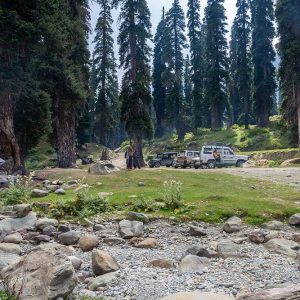
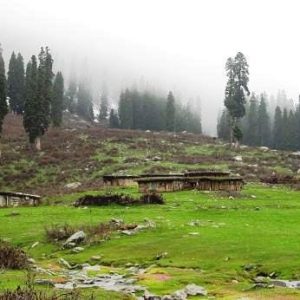
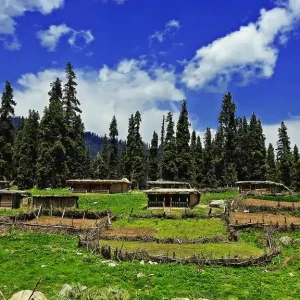
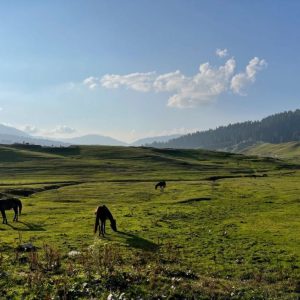
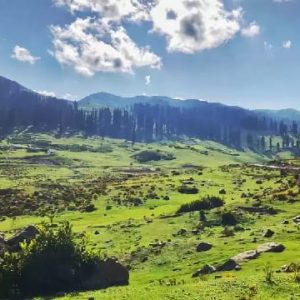
People Also Ask
What is the best time to visit Kashmir?
The best time to visit Kashmir is from March to October. Spring (March–May) brings tulip blooms and mild temperatures, while summer (June–August) offers perfect weather for houseboat stays on Dal Lake and trekking in Pahalgam. Autumn (September–November) features clear skies and golden foliage, ideal for sightseeing and Mughal Gardens tours.
Do foreign tourists need a visa for Kashmir?
Yes, foreign tourists must obtain an Indian visa before arrival. Apply online for an e-Visa and register with the Foreigners Registration Office (FRO) in Srinagar within 24 hours of landing to comply with local regulations.
Is Kashmir safe for solo travelers?
Kashmir is generally safe for solo travelers who stay informed of local advisories. Hire a licensed guide or driver for remote treks, avoid restricted border areas, and register with the FRO to ensure a secure Kashmir trip.
How do I reach Srinagar by air, rail, and road?
Fly into Srinagar International Airport (SXR) for direct connections from major Indian cities. The nearest railway station is Jammu Tawi (JAT), 300 km away, with taxis and state buses linking to Srinagar. NH44 from Jammu offers a scenic road journey through mountain passes.
What is the ideal duration for a Kashmir itinerary?
A 7-day Kashmir itinerary covers highlights: two days in Srinagar (houseboat and Mughal Gardens), one day in Gulmarg for skiing or the Gondola ride, day trips to Sonamarg and Pahalgam, plus leisure and shopping days. Extend to 10 days for deeper exploration of hidden gems like Yusmarg and Doodhpathri.
What permits are required for restricted areas in Kashmir?
Certain border regions near the Line of Control (LoC) need a Protected Area Permit. Obtain these permits through the District Commissioner’s office in Srinagar or via a registered tour operator before planning your Kashmir travel.
How safe is the water in Kashmir?
Tap water in Kashmir is not recommended for drinking. Always consume bottled or purified water. When trekking or camping, carry a reusable water bottle and a portable purifier to stay hydrated safely.
What vaccinations are recommended for Kashmir travelers?
Standard travel vaccines—hepatitis A, typhoid, tetanus, and polio—are recommended. For high-altitude treks, consult a healthcare provider about altitude sickness prophylactics. Carry a basic first-aid kit with diarrhea and cold/flu remedies.
Can I use credit cards everywhere in Kashmir?
Major hotels, resorts, and restaurants in Srinagar, Gulmarg, and Pahalgam accept Visa and MasterCard. However, small village guesthouses, local markets, and campsites often require cash (INR), so carry sufficient local currency.
What is the best mode of transport within Kashmir?
For local sightseeing, hire a private taxi or rent a self-drive car with a local permit. Shared cabs and state-run buses connect major towns. In Srinagar, use Shikaras on Dal Lake for a unique water-based commute.
How do I register with the Foreigners Registration Office (FRO)?
Foreign tourists must register at the FRO in Bemina, Srinagar, within 24 hours of arrival. Provide passport, visa, flight details, and address proof. Many hotels assist with the FRO registration process.
What should I pack for a Kashmir trip?
Pack layered clothing—thermal wear, fleece jackets, waterproof outerwear, and sturdy trekking shoes. Include sunglasses, a warm cap, gloves, sunscreen (high SPF), basic medicines, and a universal adapter for electronic devices.
Which Kashmiri dishes should I try?
Don’t miss Rogan Josh (lamb curry), Gushtaba (meatballs in yogurt gravy), Yakhni (mutton in mild yogurt sauce), Modur Pulao (sweet saffron rice), and traditional Kashmiri Kahwa (saffron-infused green tea) for an authentic Wazwan feast.
Are houseboats on Dal Lake hygienic?
Reputable houseboats on Dal Lake are hygienic and regularly maintained. Choose a well-reviewed operator that provides clean linen, filtered water, and attached bathrooms to ensure a comfortable stay.
What languages are spoken in Kashmir?
Kashmiri (Koshur) is the primary language. Urdu, Hindi, and English are widely spoken in tourist areas, making communication easy for foreign visitors.
How reliable is internet and mobile connectivity?
Major towns like Srinagar, Gulmarg, and Pahalgam have 4G coverage. However, network restrictions may be imposed occasionally. Purchase a local SIM (Jio or Airtel) for better data plans and connectivity.
What are the shopping options in Srinagar?
Srinagar’s old city bazaar offers Pashmina shawls, hand-woven carpets, papier-mâché artifacts, walnut wood carvings, and local spices. Bargain politely to get the best prices.
Can I drink alcohol in Kashmir?
Alcohol is available in licensed hotels, restaurants, and select bars in major tourist centers like Gulmarg and Srinagar. Carry your passport or ID to purchase or consume alcoholic beverages legally.
What emergency numbers should I note?
Keep these on hand: Police, Fire, Ambulance, and FRO Srinagar. Your embassy’s local contact details and your tour operator’s helpline are also crucial.
Are there any local customs I should follow?
Dress modestly—cover shoulders and knees—and remove shoes before entering homes and religious sites. Greet locals with “As-Salaam-Alaikum” and ask permission before photographing people or private properties.
How do I avoid altitude sickness in Kashmir?
Acclimatize gradually by spending a night in Srinagar (1,585 m) before ascending to Gulmarg (2,650 m) or Sonamarg (2,730 m). Stay hydrated, avoid alcohol, and consider acetazolamide after consulting a doctor.
Is tipping customary in Kashmir?
Tipping isn’t mandatory but is appreciated. A 10–15% tip for restaurant bills, INR 50–100 per day for drivers and guides, and small gratuities for houseboat staff show your gratitude for good service.
What wildlife can I spot in Kashmir?
In Dachigam National Park near Srinagar, you may see the elusive Hangul deer, Himalayan black bears, and a variety of bird species. Guided safaris increase your chances of spotting wildlife safely.
Can I go river rafting in Kashmir?
Yes, Sonamarg and Pahalgam offer white-water rafting on the Sindh and Lidder rivers respectively. Most operators provide equipment and safety gear—confirm grades and trip durations before booking.
Which festivals are best to experience in Kashmir?
Plan your visit around festivals like Tulip Festival in April at Indira Gandhi Memorial Tulip Garden, and the saffron harvest season in Pampore (October). Local Urs celebrations and Eid festivities showcase vibrant Kashmiri culture.
